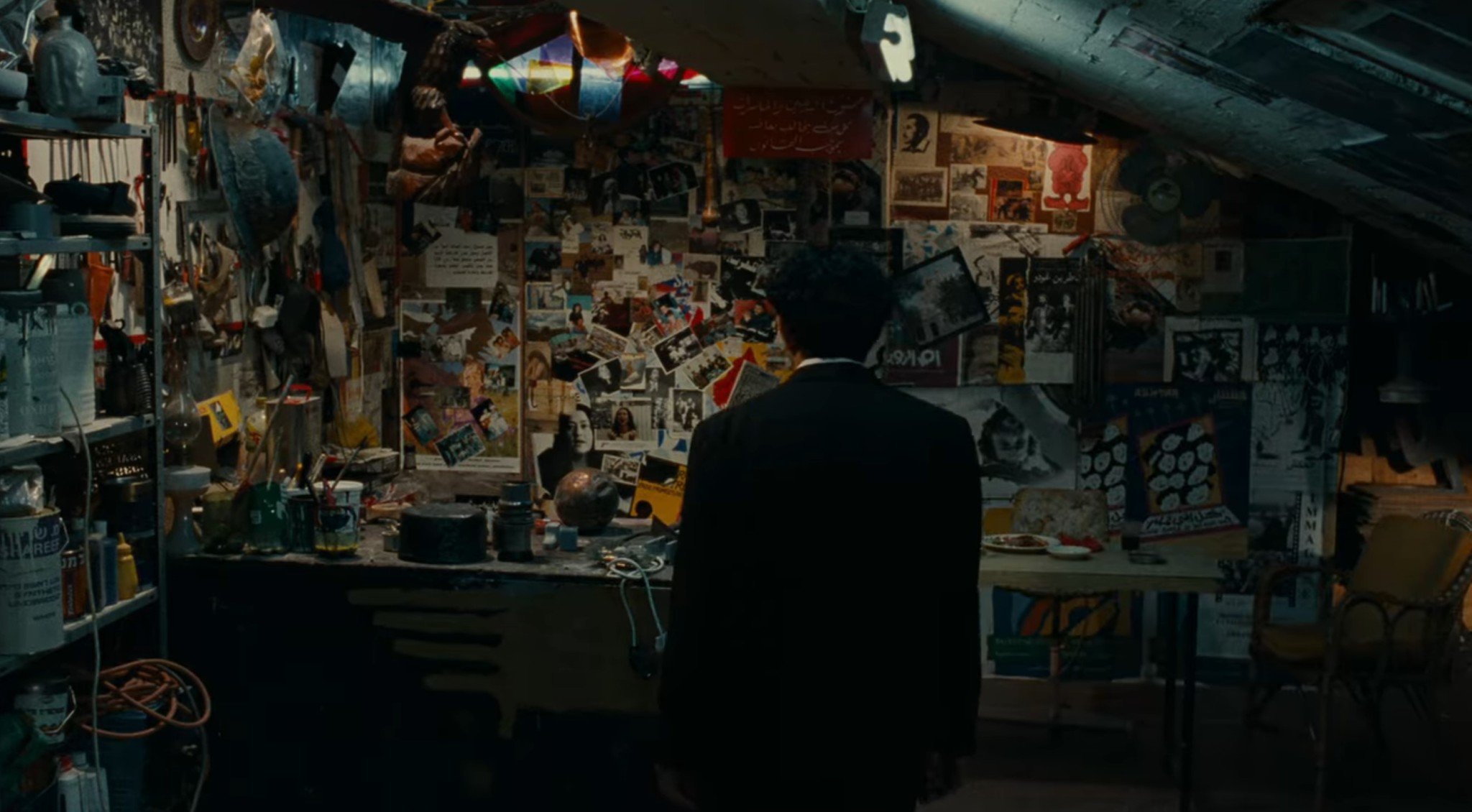The debut feature by Palestine’s most well-known director, Chronicle of a Disappearance is an unusual movie about the decades-long Israel-Palestine conflict in that it's closer to absurdist comedy than anything else. The only physical violence we see here are men cat-fighting in the street or arm-wrestling each other in cafes, and Israeli presence is limited to a couple of bumbling police officers. Chronicle is full of slapstick cinema touches — right down to the Buster Keaton-esque eyes of director Elia Suleiman, who appears here as a silent wanderer — and yet we feel the bitter reality of the occupation framing every deadpan gag.
Structured as a series of vignettes, Chronicle’s loose form is both a way to depict the stagnation and dry repetition in which Palestinians are stuck and a wry metaphor for all this listlessness. Suleiman speaks plainly in some chapters — such as the one following a woman who is repeatedly turned down from renting an apartment in Jerusalem because she’s Arab — and more obliquely in others, forcing you to recall the movie’s setting to understand his often-understated commentary. A singular film from an utterly unique director, Chronicle of a Disappearance is both a portrait of a country’s erosion and a quietly defiant act of resistance.
Synopsis
Chronicle of a Disappearance unfolds in a series of seemingly unconnected cinematic tableaux, each of them focused on incidents or characters which seldom reappear later in the film. Among the many unrelated scenes, there is a Palestinian actress struggling to find an apartment in West Jerusalem, the owner of the Holy Land souvenir shop preparing merchandise for incoming Japanese tourists, a group of old women gossiping about their relatives, and an Israeli police van which screeches to a halt so several heavily armed soldiers can get off the car and urinate.
Storyline
Palestinian filmmaker Elia Suleiman plays a man observing the absurdities of life in Palestine through a series of loosely connected vignettes.
TLDR
Jacques Tati, Palestinian style.
What stands out
As far as standout scenes go, the most obvious contender is the chapter in which Suleiman, playing himself, is invited by a conference host to talk to a crowd about his “narrative technique and cinematographic language.” Incessant microphone feedback and unruly audience members mean he never actually gets to speak, however, making for a droll commentary on Palestinian voicelessness. This scene is also a clever show-don’t-tell response to the host’s question about Suleiman’s filmmaking approach, which often works in metaphor (another example being a running gag revolving around people in cars that acts as a winking reference to the absurdity of the peace process). As cleverly layered as it all is, though, what makes Chronicle ultimately such a moving watch are the pangs of sincerity that run through all the irony, particularly in documentary scenes involving Suleiman’s own elderly parents — mournful gut-punch reminders of all the personal loss brought on by the occupation.



